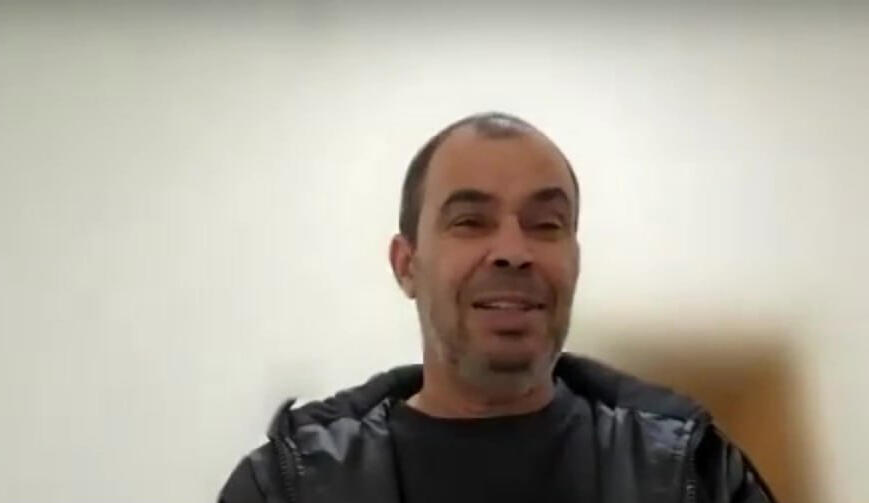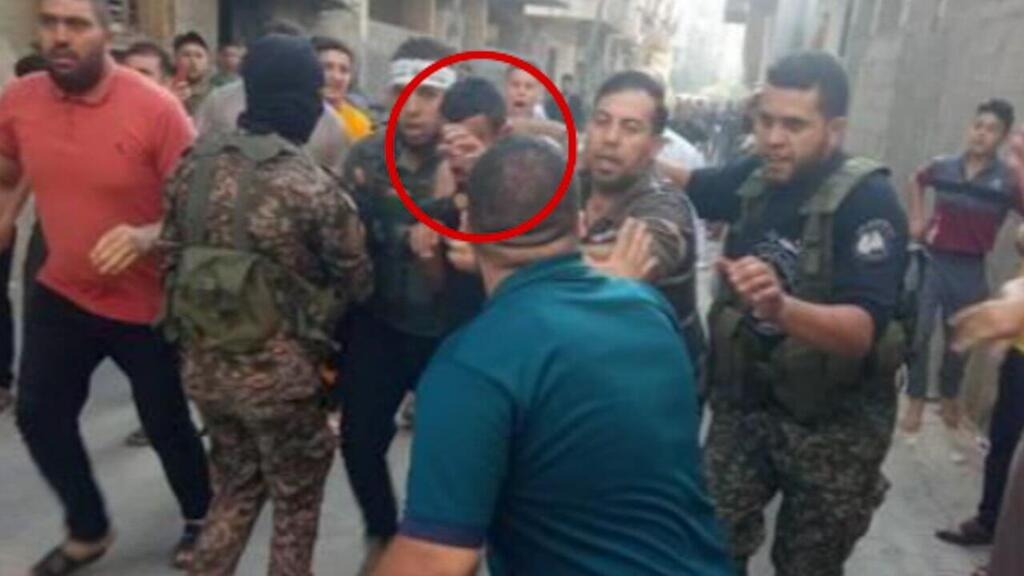Getting your Trinity Audio player ready...
Groups of members of the families of hostages have traveled internationally to engage with politicians, media personnel, and other influential figures. They aim to sway public opinion and decision-making in these countries toward facilitating the hostages' release. One such group is from the advocacy association "Israelis", which recently visited Washington.
Read more:
Central to this delegation was the family of Samer Talalka, a 24-year-old hostage from Hura who was employed at Kibbutz Nir Am's hatchery before being abducted to the Gaza Strip on October 7. His father, Fuad, who was part of the delegation, shared his distress during a live interview with Ynet on Wednesday morning. He says that in every encounter, he discusses his anguish, the uncertainty surrounding his son's abduction - not knowing his current state, whether he's alive or dead, sick or healthy, who he's with, or what he's being fed.
"We have no idea what's happened to him, and we're desperate. We must seek help from anyone who could bring the kidnapped back," Fuad expressed. He says, "A Thai citizen who managed to escape captivity said he was with my son for two hours. That's all. After the first two hours, they were separated."
Fuad, along with others from the association, traveled to meet with U.S. Congress members and Red Cross officials. Their aim was to share his son's situation and ask for pressure on Hamas. This is the first time a delegation to Washington has included an Arab-Israeli family. "I made it clear in all the meetings that we need pressure to get our children back. We can't stay silent. How long can this go on? It's already been two months," says Fuad. "Sometimes there's a cease-fire, sometimes there isn't. We, as a family, are left in uncertainty."
The father says that he "hopes to encounter Arab leaders in Washington who would support his cause." However, he emphasizes that "it's irrelevant that my son is Arab, when they kidnapped him, they assumed he was Israeli. They stormed into his place of work. He's a citizen and wasn't wearing any uniform."
"I don't care about politics. They can do as they please. Wage a war, do anything, just bring back our kids. And I'm not just talking about my own kids, I mean all of them. I share the suffering of others," Fuad, the father, says. "During the cease-fire, they claimed they were done with targeting women and children, so we thought our turn for good news would come next. But it didn't. The high hopes we had have been dashed to the ground."
Even though he's hurting, Fuad ends the interview on a hopeful note. "We're hoping things will turn out okay," the father says. "I'm hoping that our trip to the U.S. will lead to some positive outcome. If we've gone to the ends of the earth, we should at least get something in return, and not come back with nothing."
In a heartfelt interview last month, Fuad, fighting back tears, said of his son: "Samer is 24, a bachelor. He was supposed to get married this summer, and even started building his house right behind mine. He's been working alongside me in the kibbutz hatchery for six years. He really loves motorcycles - they're his passion, his obsession. He's a good, honest young man who stays out of trouble."
"Sometimes in the afternoon, I wander around here, sitting alone in one of the incomplete rooms of Samer's house. I'm often in tears, smoking a cigarette and sipping coffee - just waiting for him, hoping he'll come home," his father confided. "A family member suggested we should keep building, but I just can't. How can we go on building Samer's home when he isn't here?"




